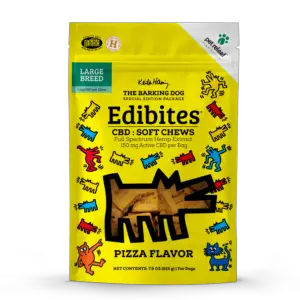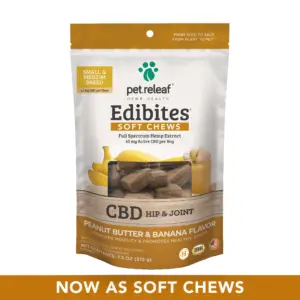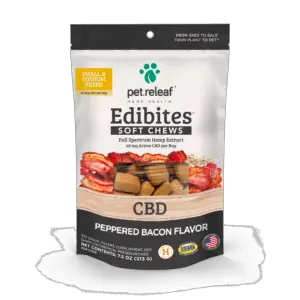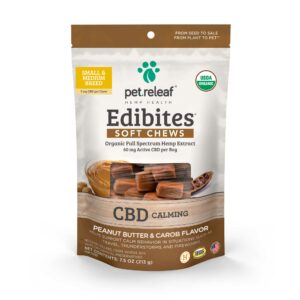
Key points
- Colitis is an inflammation of the large colon that is accompanied by diarrhea. Pets that suffer from colitis may also have blood and mucus in their feces and experience pain during defecation. This condition should be addressed with a vet as soon as possible.
- There are three types of colitis: acute, episodic, and chronic. All of them should be treated by a professional, but acute and episodic colitis usually resolve on their own.
- The most common causes of dog colitis are stress, trauma, parasites, allergies, and gut infections.
- The cause of colitis in a dog determines its treatment. It usually involves following a strict diet and medication regimen. VitaminA oil can be a great supplement to colitis treatment, especially if the condition is caused by stress.
Colitis or large bowel diarrhea is a condition that causes inflammation of the large intestine. Colitis results in diarrhea or loose stool which usually contains blood or mucus. This can cause a lot of discomfort and even pain to dogs, but with proper treatment, your dog can overcome this condition pretty quickly.

If you suspect that your dog has colitis, you should start treating this condition as soon as possible. In this article, we give a general overview of colitis in dogs, look over its causes, and talk about treatment options.
Table of Contents
What Causes Colitis In Dogs?
There are many factors that can cause your dog to develop colitis. However, the most common causes of dog colitis include:
- Stress: is the most common cause of colitis in dogs. Stressful situations put significant pressure on the canine immune system;
- Eating something unusual, contaminated, or ingesting a foreign body;
- Gut infections such as Salmonella, Clostridium, and E. Coli;
- Algae or fungal infection;
- Injury or damage to the colon;
- Worms or parasites such as Giardia, Cryptosporidium, and whipworms;
- Primary inflammatory bowel disease (lymphoplasmacytic, granulomatous, eosinophilic, and histiocytic types);
- Immune diseases;
- Food allergies;
- Irritable bowel syndrome (IBS);
- Pancreatitis. Sometimes colitis may occur after your dog has been in contact with infected dogs or if the pet experiences chronic exposure to a wet environment. Regardless of the cause, colitis reduces water absorption in the intestine and decreases your dog’s ability to hold feces in the colon.
Types Of Colitis In Dogs
Acute colitis
When your dog has acute colitis, it’ll seem healthy but experience a strong urge to defecate. In most cases, acute colitis resolves by itself, but it also usually stays undiagnosed and impacts your dog’s quality of life.
Chronic colitis
This type of colitis can bother your dog for an extended period of time, sometimes even for years.
In addition to diarrhea, the dog will likely experience symptoms of secondary conditions as well. Chronic colitis should be treated immediately to prevent the pet from developing other health conditions.
Episodic colitis
Recurring colitis in dogs lies somewhere between acute and chronic colitis. But unlike chronic colitis, episodic colitis can resolve on its own.
Dog Colitis Symptoms
Dogs that have colitis experience discomfort all the time. The symptoms of colitis may vary depending on the dog, but the most common are:
- Runny feces and more frequent defecation;
- Feces containing fresh blood or mucus;
- Constipation;
- Pain when going to the toilet;
- Weight loss;
- Loss of appetite or development of unusual eating habits;
- Increased flatulence;
- Lethargy;
- Vomiting (this condition occurs in less than 1/3 of dogs suffering from colitis).
Diagnosing Canine Colitis
If you think that your dog has colitis, you should seek veterinary attention as soon as possible. Your dog’s veterinarian will look through your dog’s health history and eliminate all other possible causes of diarrhea such as colonic tumors or polyps, cecal inversion, irritable bowel syndrome, and ileocecocolic intussusception.
In most cases, veterinarians will ask for a stool sample to rule out the possibility of worms and other parasites.
As an option, your dog’s vet can do some X-rays and ultrasound examinations to see if there are any obstructions in your pet’s digestive tract. Lastly, blood counts, fecal cultures, barium enemas, colon biopsies, or colonoscopies can be done to determine the cause of colitis.
Dog Colitis Treatment
The treatment of colitis will depend on the cause, as there are few options available. The most common way to stop acute colitis is to make your pup fast for 24-48 hours after it has been diagnosed. This will allow your dog’s digestive tract to rest. Sometimes, veterinarians will prescribe a bland, hypoallergenic, or veterinary diet. Some diets will have an increased dietary fiber content because of added fermentable fiber such as psyllium, beet pulp, or fructooligosaccharides (FOS), while others will have a lower fiber content. Your dog’s vet will determine what will work better for your pup after weighing different underlying factors.
If colitis is caused by worms or parasites, the treatment will involve deworming. Your dog’s vet will talk you through all the details regarding administering the drugs.
Other treatment options may include giving your dog probiotics to improve gut health, anti-inflammatory medication to reduce inflammation and pain, and antimicrobial drugs to treat infections. Drugs that modify the colon’s motility may also be recommended for symptomatic relief.
No matter what type of treatment your dog receives, it’s crucial to strictly follow all the recommendations. This will guarantee that the condition is fully treated and won’t return in the future. If your pup doesn’t show any signs of improvement during the treatment or after it has finished, take it back to the vet for further examination and additional treatment.

Usually, pups with colitis are treated at home, but if the condition is severe, your dog may be admitted to a hospital and receive treatment through an IV.
Colitis Prevention In Dogs
Sometimes, even if colitis has been properly treated, your dog can experience it again due to different irritants. Here are a few tips for preventing canine colitis:
- Teach your dog not to eat things that can irritate its digestive system;
- If colitis is caused by the food your dog eats, consider switching to another type of diet. Consult with a veterinarian to find a food that suits your dog’s dietary needs;
- Conduct regular deworming treatments to eliminate the risk of parasite infestations;
- Minimize stressful situations in your pup’s life. Stress colitis can disappear on its own after up to 5 days, but it’s better not to stress out your dog at all to avoid provoking the condition.
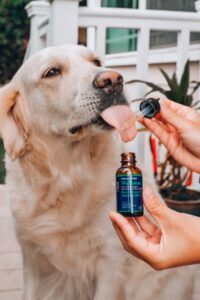
VitaminA Oil For Dog Colitis
As mentioned above, stress is one of the most common factors to cause colitis in dogs. Dogs can experience anxiety due to changes in their environment, new people, and loud noises. If your dog is anxious and becomes stressed very easily, VitaminA oil may be the solution you’re looking for. VitaminA is effective at helping dogs stay calm. It also does a great job at relieving inflammation, which can ease your dog’s discomfort when it suffers from colitis.
FAQ
How do you treat colitis in dogs?
The treatment for dog colitis usually involves a bland diet, probiotics, deworming treatment, and anti-inflammatory medication.
What foods trigger colitis in dogs?
Any foods that your dog is allergic or intolerant to can cause your pet to develop colitis. The most common allergens for dogs are different types of meat, wheat, and lactose.
How long can dogs live with colitis?
Canine colitis shouldn’t be left untreated, as it requires urgent treatment. In most cases, untreated colitis can cause the pet to die within 2 years.
What is the main cause of colitis?
The most common cause of colitis in dogs is stress. However, infections, allergies, and parasites can also play a role.
What should dogs with colitis not eat?
Avoid giving your dog foods that may cause an allergic reaction. For example, it may be good to switch to an insect-based dog food since beef is the most common allergy trigger in dogs.

